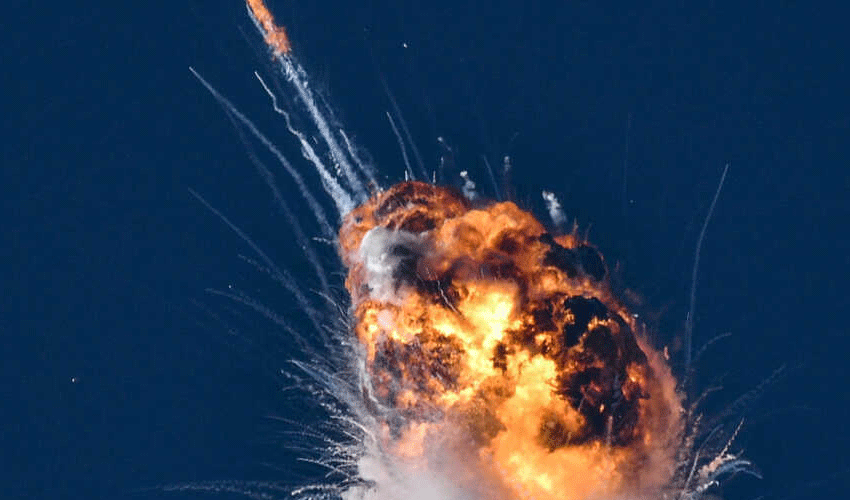India suffers setback as Earth-observation satellite launch fails

ISRO’s PSLV suffers rare failure due to third stage anomaly
Tanveer Ahmad:
India’s bid to enhance its remote sensing capabilities suffered a setback early Sunday morning when an Earth-observation satellite was lost following a launch failure from the Satish Dhawan Space Centre.
The Indian Space Research Organisation (ISRO) launched its EOS-09 satellite aboard a Polar Satellite Launch Vehicle (PSLV) on Saturday at 8:29 p.m. EDT (0029 GMT or 5:59 a.m. IST on Sunday, May 18). However, the mission failed to reach its intended orbit due to an anomaly in the rocket’s third stage, approximately six minutes after liftoff.
“The PSLV is a four-stage vehicle. Up to the second stage, the performance was quite normal. The third stage motor started perfectly, but during its functioning, we are seeing an observation, and the mission could not be accomplished,” ISRO Chairman V. Narayanan said in a televised statement shortly after the launch. He added that further analysis is underway to determine the exact cause of the failure.
Telemetry data reportedly showed a drop in velocity and deviation from the expected flight profile during the third stage burn, leading to the premature termination of the mission. ISRO later confirmed a drop in chamber pressure in the third stage, resulting in the satellite failing to attain orbit.
This marks the first failure for the PSLV since August 2017, when the rocket’s payload fairing failed to separate during the launch of a navigation satellite. Prior to that, the PSLV had two failures in the 1990s — including its maiden flight in 1993 and a partial failure in 1997.
The EOS-09 satellite, weighing 1,694 kilograms (approximately 3,735 pounds), was equipped with a synthetic aperture radar (SAR) designed to capture high-resolution images regardless of weather or daylight conditions. It was scheduled to deploy into a sun-synchronous orbit at an altitude of 535 kilometres, 18 minutes after liftoff.
Had the launch succeeded, EOS-09 would have become the ninth mission in India’s Earth Observation Satellite series. The satellite was reported to be identical in design and purpose to EOS-04, which was successfully launched in 2022.
“EOS-09 is designed to provide continuous and reliable remote sensing data for operational applications across various sectors,” ISRO said prior to the launch. While the space agency did not provide specific details on its operational objectives, Indian media reports indicated the satellite would have bolstered India’s strategic surveillance capabilities, particularly along its borders with Pakistan and China.
India Today had described the satellite’s round-the-clock imaging capability as “especially significant” in the context of regional security concerns.
The PSLV, often described as the backbone of India’s space programme, has carried out more than 60 missions since its debut in the 1990s. Although considered highly reliable, Saturday’s failure highlights the complex and high-risk nature of space launches.
This was the first PSLV mission of 2025, following three launches in each of the past three years.
India rocket launch failureISRO PSLV failureEOS-09 satellite lostEarth observation satellite IndiaIndian Space Research Organisationsatellite launch failure 2025PSLV rocket anomalysynthetic aperture radar satelliteIndia space program setbackSatish Dhawan Space Centre launch





